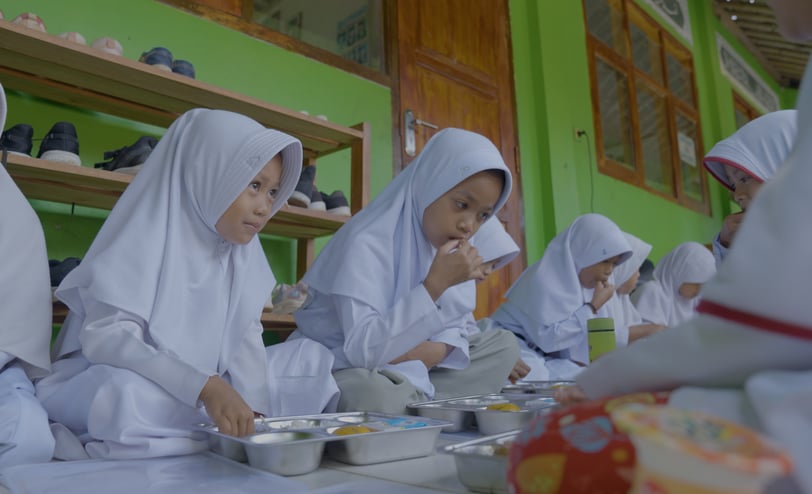Implementation Strategy of School Meal Programs Across Countries
KAJIAN STRATEGIS


School meal programs play a critical role in enhancing child nutrition, improving educational outcomes, and addressing food security worldwide. These programs are designed to provide students with nutritious meals during school hours, ensuring they receive adequate nourishment to support their cognitive and physical development. However, the implementation of such programs varies significantly across countries, influenced by factors such as policy frameworks, funding sources, infrastructure capacity, and socio-economic conditions.
This research aims to analyze the diverse strategies employed by different nations to implement school meal programs effectively. By examining global best practices, policy approaches, and operational models, the study seeks to identify key success factors and challenges in sustaining these programs. The research also explores the role of governments, international organizations, and private sector collaborations in ensuring program efficiency and long-term impact.
Through a comparative analysis, this study provides insights into the effectiveness of various implementation strategies, offering recommendations for policymakers and stakeholders interested in designing or improving school meal initiatives. The findings contribute to a broader understanding of how structured school feeding programs can enhance child welfare, boost school attendance, and support local agricultural economies.
This research likely examines how different nations develop and manage their school meal programs. The study may cover:
Policy Frameworks – How governments regulate and support school meal initiatives.
Funding Mechanisms – Sources of funding (government budgets, international aid, public-private partnerships).
Operational Models – Methods of meal delivery (centralized kitchens, school-based preparation, outsourcing).
Nutritional Standards – Guidelines for ensuring meals meet health and dietary requirements.
Challenges & Solutions – Barriers such as logistics, food waste, budget constraints, and strategies to overcome them.
Global Case Studies – Comparative analysis of programs in different countries, highlighting best practices and lessons learned.
Note: This article was written by Dwi Rahmawati, I Dewa Made Agung and Christabel Bessya on 18 February 2024.
The study can be downloaded at the following link:
https://drive.google.com/file/d/1GWCbAArjKz3aaBCo3BoiApBJ8RzaGZpc/view

